Translations 677
Gerardo dreamed of being a father

Gerardo, the hero, dreamed of being a father
And he has fulfilled it, three times
By L Eduardo Domínguez, Claudia Yilén Paz Joa
June 17, 2017
When Sunday is celebrated in several regions of the world as Father’s Day, Gerardo Hernandez and Adriana Perez, will have two new reasons to celebrate the special date. The family they built together, fighting two life sentences and 15 years, has already grown to five members, like the five who were the heroes of their cause. The three children born in less than three years, although it is hard to believe, were dreamed of almost exactly as they arrived.
What is a day in the life of the hero who named in letters the children who were going to be born? How did he feed his hope and that of his beloved, more than ninety miles from an infernal hollow? What does a man feel when he fulfills all his dreams and a review of his life is full of impressive coincidences?
Behind the studio glass headsets and microphones are adjusted. They are ready now. Excited and happy, they share laughter and tears, after the poem that provokes memories, music and anecdotes of love. Don’t stop listening to the exclusive interview with the Hero of the Republic of Cuba that from his space “The Light of Memory”, Radio Rebelde gives to parents on their day this Sunday at 11:00 p.m. At Cubadebate we bring you the exclusive.
A CubaNews translation by Walter Lippmann.
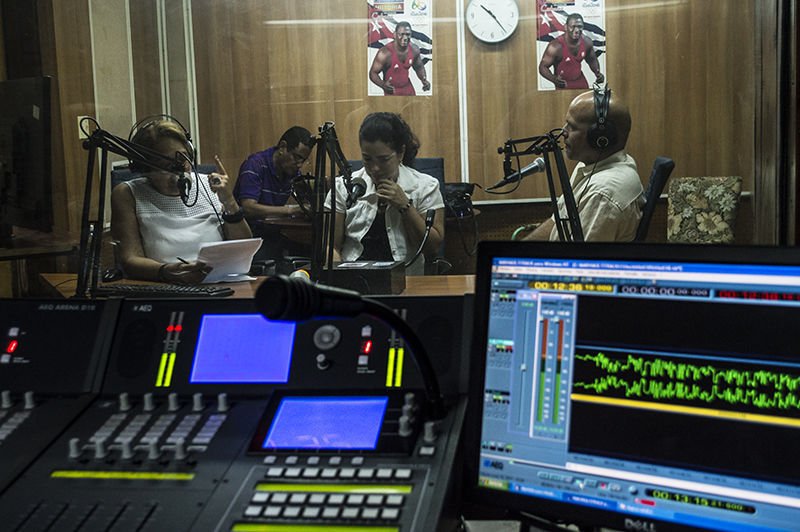
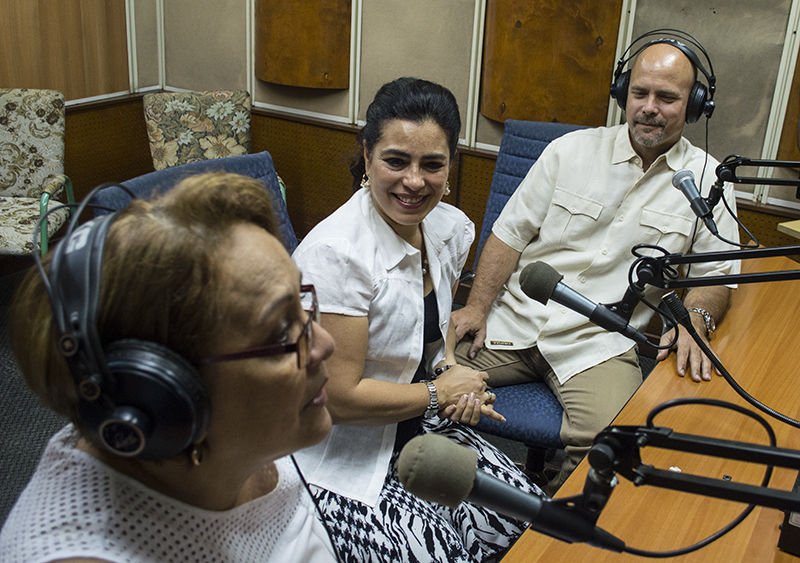
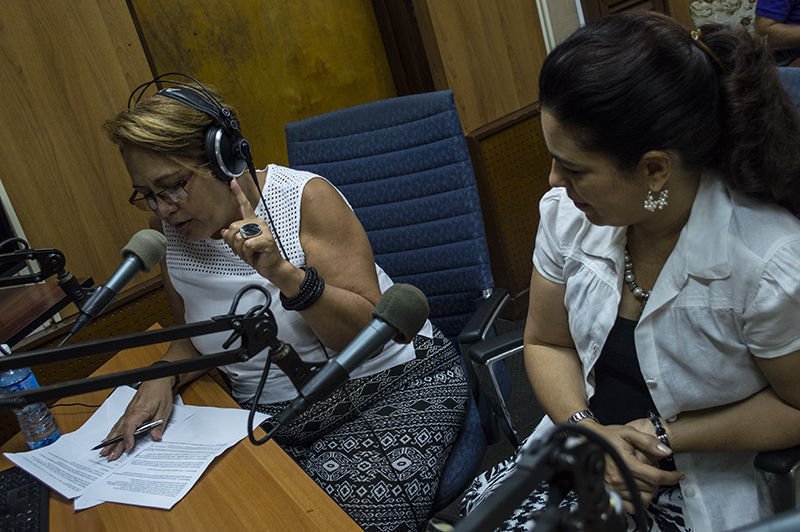
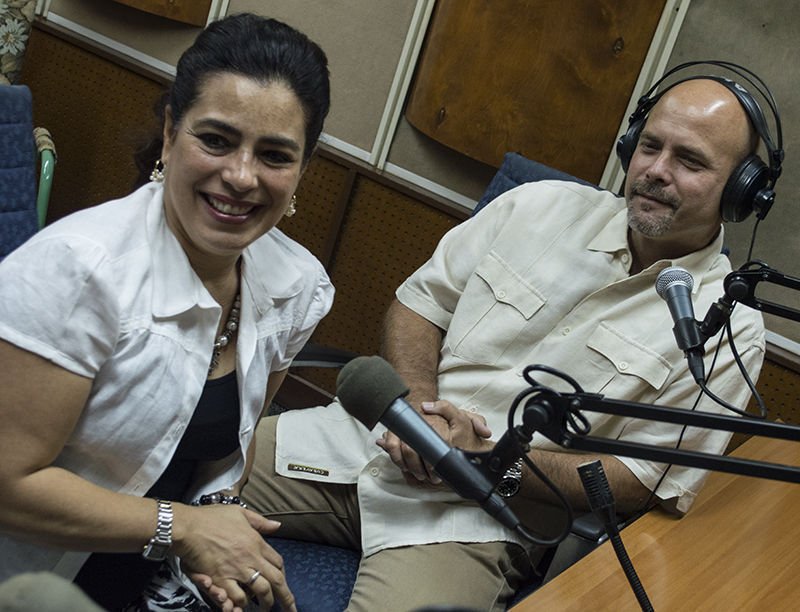
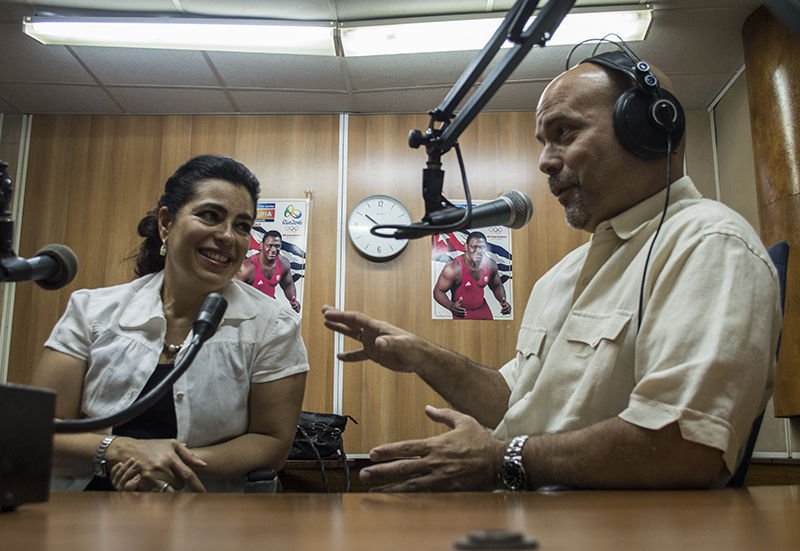
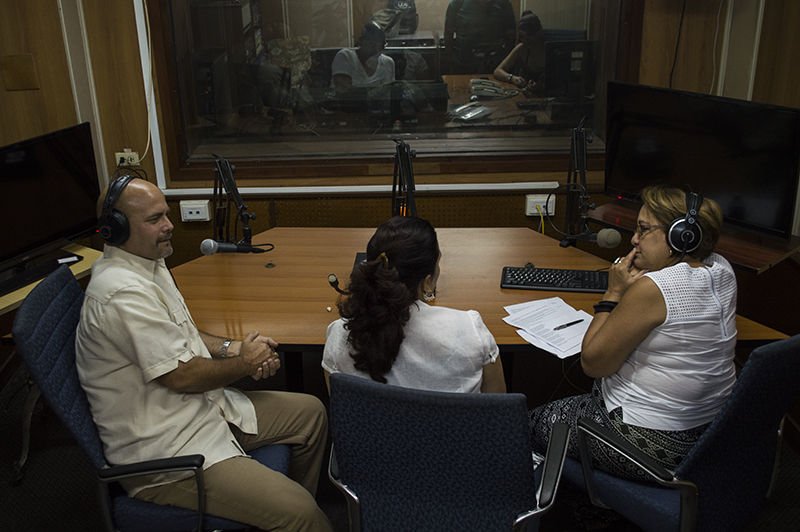
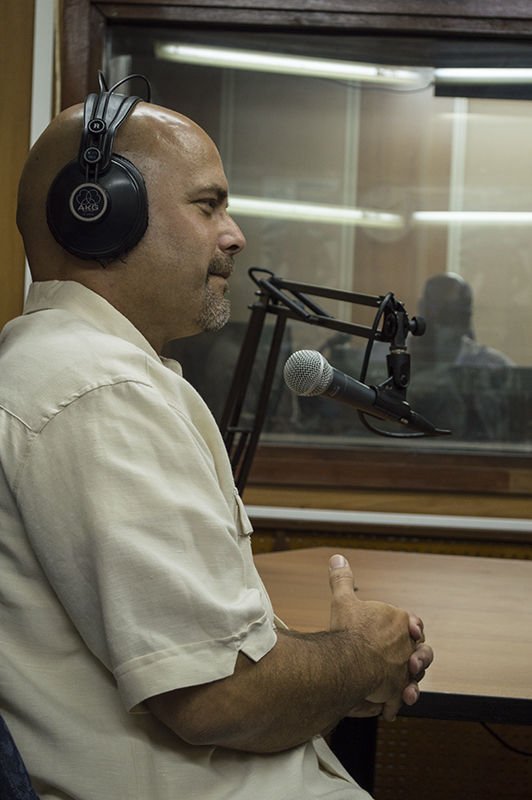
“The Cuban dissidents are an artificial phenomenon
- English
- Español
http://www.elespanol.com/
“The Cuban dissidents are an artificial phenomenon”
Cuban spy Gerardo Hernandez spent 16 years imprisoned in the US and was amnestied in the process of rapprochement.
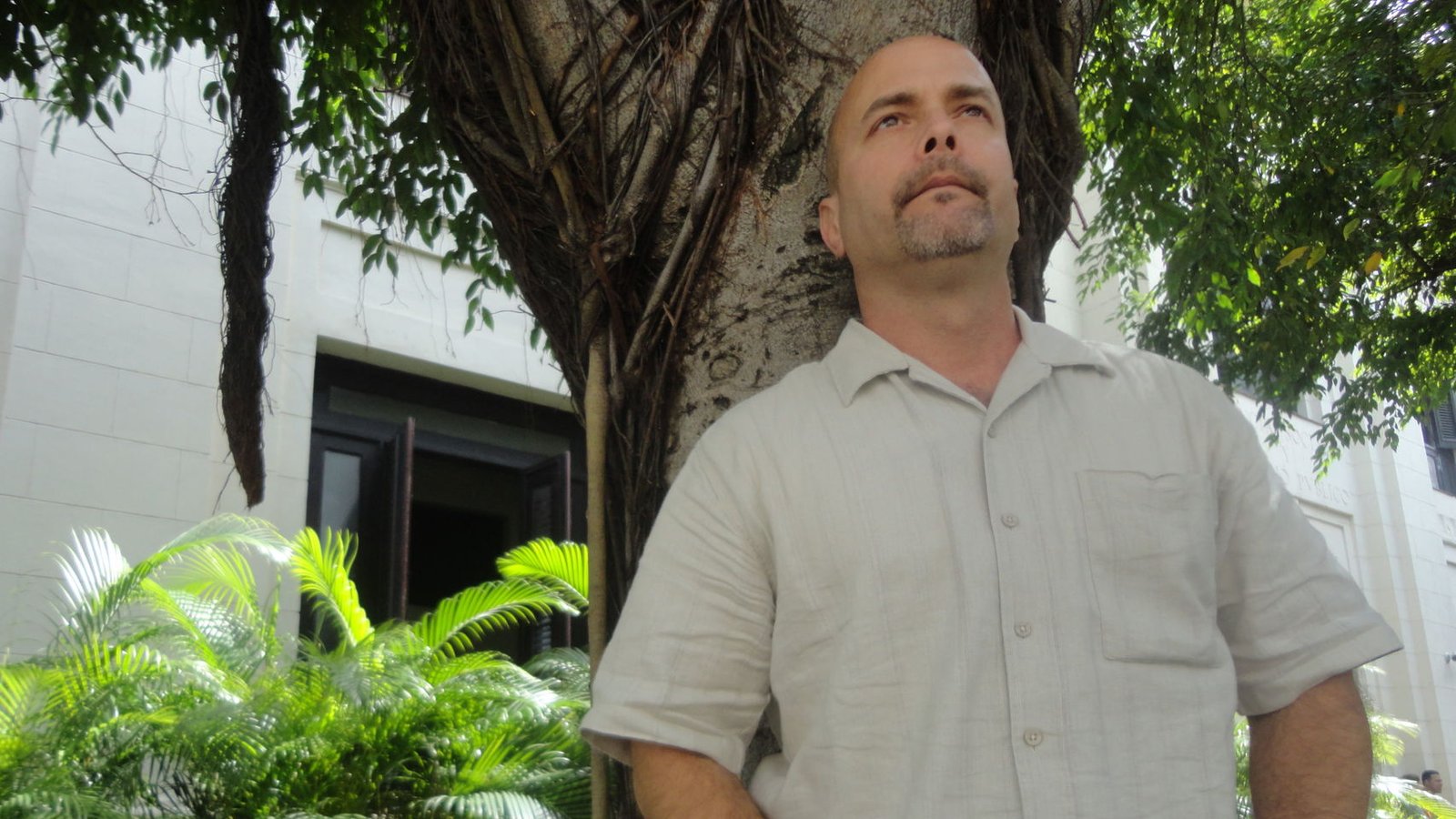
Former Cuban spy in the US believes that Havana has won the tug-of-war with Washington.
DANIEL PINILLA
Havana, 03/19/2016 02:45 h.
A CubaNews translation.
Edited by Walter Lippmann.
Gerardo Hernandez (Havana, June 4, 1965) is the son of a Canary Islands woman who came to Cuba when she was fifteen. He does not have a Spanish passport and considers himself a Cuban patriot. He is the man of the moment on the island. Convicted of conspiracy to commit espionage in the United States, he spent more than fifteen years in prison there.
On December 17, 2014 he was amnestied as a gesture of good will in the process of rapprochement between Cuba and the US. El Español has spoken with him under the watchful eye of the Alma Mater statue at the University of Havana days before the historic visit of Barack Obama to the island, which begins this Sunday. His words are echoed, and heavily so, throughout Cuba in this crucial moment for the largest of the Antilles.
Why were you sent to jail and why where you amnestied?
I was sent to jail because I was doing intelligence work for Cuba in the United States. For many years, groups that were sometimes paid and other times tolerated by the United States had been coming to attack Cuba, planting bombs in hotels, blowing up planes … The US never did anything to stop it, so Cuba was forced to send people over there to uncover their plans and send information over here.
We were arrested and tried in Miami without the minimum guarantees of impartiality. In my case, I was sentenced to two life sentences plus fifteen years of imprisonment. After sixteen years in prison, as part of the ongoing process of rapprochement, the two countries reached an agreement, a part of which was the release of three of the five of us who were still in prison.
Is it correct to say that you were a spy?
Look, there are people who defend us and who take offense by the term. I tell you that the term is wrong, but I do not take offense. Legally it does not apply to us because according to US law, we were not accused of spying, but of conspiracy to commit espionage. But I do not feel offended by the term, as I said. I was an intelligence officer and a spy is something that people talk about in the movies and such.
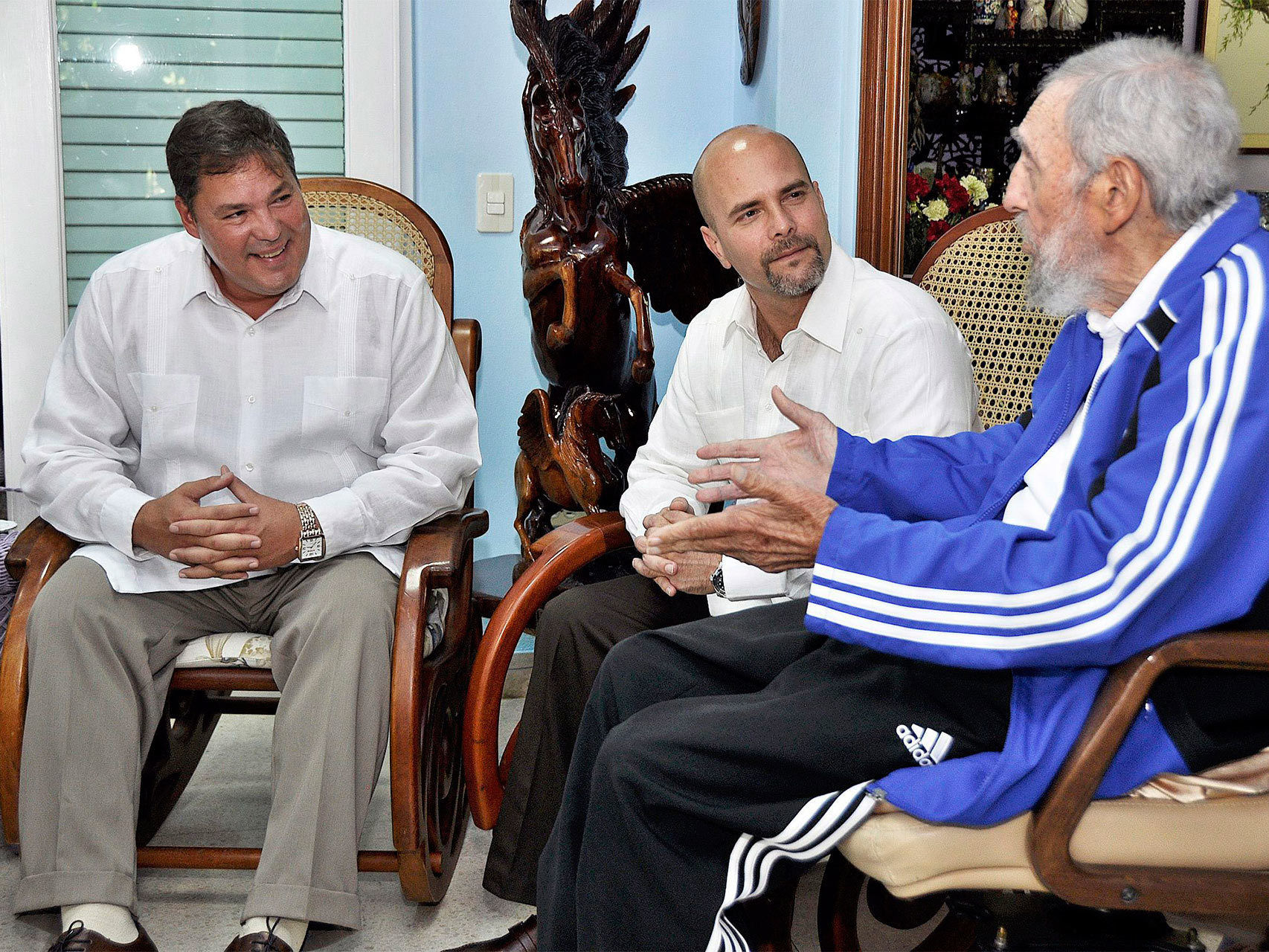
Fidel Castro talks to Hernandez and Ramon Labañino, another of the prisoners.
Photo: Cuban government
Looking ahead, do you see yourself returning sometime to the US, or do you think of the country holding a grudge?
I hold no grudge whatsoever. I took up a responsibility when I agreed to carry out my mission and I have no problem with that. While we did have the unpleasant experience of hearing people say that they wanted to lynch us, and of having had an unfair trial that lasted more than six months, there were also people, including political and religious officials, who were able to see that our cause was just; also there were actors like Danny Glover, who supported us.
Generally speaking I have no negative feelings toward the US people, but I do not see myself going back because one of the conditions imposed for our release was that we could never go back to that country.
I’m going to ask you to be critical of the Revolution and tell me what it has done wrong in these decades, and if you understand that it is time to seriously consider holding multi-party elections in Cuba.
I think that we do have options in Cuba. I guess you mean the fact that there is a single party. That is the result of historical factors: José Martí founded a single party to make it the party of the Cuban nation. Over time, the Communist Party of Cuba has opened up to other sectors such as the religious. Our goal is to make it even more participatory; but we firmly intend to maintain unity.
Our people, 90, 80 or 75 per cent of it support their Revolution.
Throughout our history we have paid dearly on account of disunity. If they manage to divide us, we will be in trouble. You cannot analyze Cuban reality without emphasizing that we are a small country only ninety miles away from the most powerful nation in the world, one that has been determined to prevent Cubans from choosing our own destiny. Our people, 90, 80 or 75 per cent of it support their revolution. You can rest assured that the day when Cubans do not support the revolution, this could not hold. If we are standing today, it is because we have the majority of Cubans with us. It is not a perfect society, but we want to make it ourselves.
Raul Castro has already announced that he resigns this year. There is talk about Vice President Miguel Diaz Canel, the Minister for Economy Marino Murillo, even about a son of Raul’s…
This is not a monarchy. In Cuba, the succession that occurred was because Raul was our vice president and there was no one else more apt or loved by the people. The [National] Assembly [Parliament] met and he was elected.
This is not a monarchy. In Cuba succession happened because Raul was our Vice President
My personal opinion is that it should be comrade Miguel Diaz Canel, who has a great performance record. But everything depends on the will of the Cuban people.
You speak of the will of Cubans and the possibility of it being expressed under the current regime. When you were in prison, the late dissident Oswaldo Paya collected signatures –as contemplated in the law– in what was known as the “Varela Project”. He demanded freedom of expression and assembly, entrepreneurial freedom, democratic elections and amnesty for political prisoners. He was ignored, but eventually some of his proposals have been adopted. What do you say to that?
Actually I was in prison then. I do know that there have been many projects financed from abroad. For less than that, in the United States you get accused of being an agent at the service of a foreign power, for which I got a fifteen-year sentence. I am sure that in Spain anyone who tries to change the government while being paid by a foreign power would go against Spanish law. If this happens in Cuba, other countries applaud. And, well, if we have taken measures that were in that project, let them be welcome.
The bottom line is: in Cuba do people really have the possibility to make decisions about the political system within the current framework?
Cuba’s current system is not perfect, just like all others. But I’ll give you an example: in the last election of the People’s Power, people who are openly against the Government were nominated. There was a vote and they had their chance. The only requirement in our system is that you get elected at the grassroots; you do not have to be a Party member. It is enough to have a base that supports you.
Yoani Sanchez is primarily a media phenomenon created by the Grupo Prisma, and she is better-known abroad than inside.
We can continue modifying aspects of the system to make it more participatory, but the possibility already exists. What happens is that these dissidents, who sometimes are better known outside Cuba than inside, do not have a base of social support. These are cases artificially created from abroad for a reason. And I’ll give you the case of Yoani Sanchez, a media phenomenon created primarily by the Grupo Prisma, who is better known outside than inside. She can stand here at any corner and nobody knows her.
Nor do the Cuban media give her any coverage…
Sure, she hasn’t deserved it either. The Cuban media would give coverage to a woman who may be having a hard time trying to push her family forward. But I do not see any merit in this person to promote her, and we are not going to waste any money of our media to do so.
There is a great expectation with Obama’s visit. Everyone in Cuba surmises that a new stage is about to begin, but no one gives a name to it. Perhaps it is an economic opening without altering the political system, as in China, or something else. What is your perception?
I don’t have a crystal ball to tell you how Cuba will look like in a few years. What I can tell you is what most Cubans want: a country that solves the problems that still affect us, but also that it does not resemble the Cuba of the past when it was necessary to make a revolution.
What would you demand from the United States so that it doesn’t stop at a policy of gestures; what specific measures would you like to see?
Just what we have demanded for more than half a century, since the triumph of the Revolution: For the US to recognize our right to exist as an independent and sovereign nation, to recognize that we are not their backyard. For them to understand that Cuba is a nation that decided its own destiny; and that we Cubans have the right to resolve our own problems without foreign interference.
In relation to the many Cubans who reside in the United States, conflicting versions circulate. The state newspaper Granma argues that this is not so and that they will do anything to prevent the Castro regime from receiving a life-line. What do you think?
For many years now a lot of surveys have been performed by respectable firms, some of which are not at all friendly to Cuba. Even surveys by the US government itself recognize that the vast majority of Cubans living in the US want a normal relationship with their country. Now then, that vast majority of Cubans do not yet have enough economic and political clout to push for more rapid measures.
Cuban power in the US is held by a minority segment –increasingly so– of powerful Cuban families who have found their way into Congress.
The political and economic power there is held by a minority segment –increasingly so– of Cubans who left this country. They belonged to powerful families and in recent years have come to hold seats in Congress. Up until this week, there were two aspiring candidates for the US presidency of Cuban origin [Republicans Ted Cruz, and Marco Rubio who has withdrawn from the presidential race]. That segment is increasingly small, but unfortunately it is the one that controls the banks and the media. The majority is on the other side, but unfortunately many still do not vote and have no power to raise an opinion.
If Ted Cruz wins, would it be good or bad news for Cuba?
I think it would be very bad, because they are people who have lived off the hatred industry for many years. Hatred against Cuba has given them a modus vivendi like Ileana Ros-Lehtinen, for example, Lincoln Diaz-Balart … members of Congress who for many years have not had a well-defined program other than hatred against Cuba. They have objected to everything that might have benefited the Cuban people. For instance, when hurricanes have devastated the Island and the Red Cross has wanted to seek help from the United States, they have even opposed that. Their preaching has always been: we will destroy the Government of Cuba; we will recover Cuba at any price. They have motivated a generation of old Cubans who know nothing but that message of hatred. That will change with the new generations of Cuban immigrants, especially starting in the eighties, who went to that country to advance economically and help their families.
If the US puts on the negotiation table the need for free elections in Cuba before discussing Guantanamo and the blockade, would it be acceptable?
Of course not. If we talk to them it is because they have recognized that it is impossible for Cuba to accept preconditions. For many years they said they had nothing to negotiate while the Castros were in power, the country was Communist and had a single party; Cuba always remained firm and said that if we ever sat down to negotiate, it would be on equal terms without preconditions. Finally they had to accept.
If we talk with the US it is because they have recognized that it is impossible for Cuba to accept pre-conditions
Do you think Cuba is the winner of this tug-of-war?
I think that Cuba has already won in the sense that we have not given up any of our principles to sit down and negotiate. They are the same since 1959. The United States has said for decades that it would never negotiate while the Castros were in power and yet, Raul Castro is our president, Fidel is alive and is our guide. And they are negotiating with us. It is a victory for Cuba that they have sat down to negotiate without conditions.
EX HUMORIST AND FATHER ‘BEHIND BARS’
Before joining the Cuban intelligence services, Gerardo was a cartoonist. Throughout his years behind bars he claimed he had not lost irony as a weapon of defense. “You can put humor into sixteen years in prison; it is something that helps a lot. We humorists have a particular way of seeing life, and is not that what we take everything lightly, but I do not know any embittered person who can be a humorist. In my case, my optimistic nature helped me a lot. All along the years that we spent in prison, the five of us often laughed at our own misfortunes. That helped us. “
In prison, the five of us often laughed over our own misfortunes
Gerardo has recently become a father. The numbers don’t add up for a period of normal pregnancy, since his daughter was born a few days after he was released. The explanation: “We always wished to have our child; we had asked for conjugal visits for prisoners, something that happens in Cuba but not in the United States, at least in federal prisons. My wife Adriana asked an American senator for help and he knocked on the right doors to allow me to make a donation after my wife had her eggs frozen. It was a process of in vitro fertilization”. The little girl is called Gema and she was born on January 6, 2015.
“La disidencia cubana es un fenómeno artificial”
DANIEL PINILLA La Habana
19.03.2016 02:45 h.
Gerardo Hernández Nordelo (La Habana, 4 de junio de 1965) es hijo de una canaria que llegó a Cuba cuando tenía quince años. Él no tiene el pasaporte español y se considera patriota cubano. Es el hombre del momento en la isla. Condenado por conspiración para cometer espionaje en Estados Unidos, ha permanecido más de tres lustros en la cárcel allí.
El 17 de diciembre de 2014 fue amnistiado como gesto de buena voluntad dentro del proceso de acercamiento entre ambos países. EL ESPAÑOL ha hablado con él bajo la atenta mirada de la estatua del Alma Mater de la Universidad de La Habana en los días previos a la histórica visita de Barack Obama a la isla, que se inicia este domingo. Sus palabras tienen eco, y mucho, en toda Cuba en este momento trascendental para la mayor de las Antillas.
¿Por qué fue encarcelado y por qué ha sido amnistiado?
Fui encarcelado porque estaba en Estados Unidos haciendo labor de Inteligencia para Cuba. Durante muchos años, grupos a veces pagados y otras tolerados por Estados Unidos han estado viniendo para agredir a Cuba, han puesto bombas en hoteles, derribado aviones… EEUU nunca hizo nada para impedirlo, así que Cuba se vio obligada a mandar gente a ese país para descubrir sus planes y mandar información para acá.
Nosotros fuimos arrestados, se nos hizo un juicio en la ciudad de Miami sin las mínimas garantías de imparcialidad. En mi caso se me condenó a dos cadenas perpetuas más quince años de privación de libertad. Después de haber cumplido dieciséis años en prisión, como parte del actual proceso de acercamiento, los dos países llegaron a un acuerdo, parte del cual era la libertad de los tres de los cinco que quedábamos encarcelados.
¿Decir que ejerció de espía es correcto?
Mira, hay personas que nos defienden y que se ofenden con ese término. Yo te digo que el término es incorrecto, pero yo no lo tomo como una ofensa. Legalmente no nos aplica porque las propias leyes de EEUU no nos acusaron de espionaje, sino de conspiración para cometer espionaje. Pero no tomo ofensa con el término, ya te digo. Yo era agente de Inteligencia y lo de espía es algo que dice la gente por las películas y demás.
PHOTO
Fidel Castro habla con Hernández y Ramón Labanino, otro de los encarcelados. Gobierno cubano
Mirando al futuro, ¿se ve regresando en alguna ocasión a Estados Unidos o piensa en el país con rencor?
No hay rencor ninguno. Asumí una responsabilidad cuando acepté cumplir mi misión y no hay problema. Si bien tuvimos la desagradable experiencia de escuchar a personas decir que nos querían linchar y de haber estado en un juicio sin garantías que duró más de seis meses, también hubo gente, incluso funcionarios políticos y religiosos, que supieron ver que nuestra causa era justa; también actores, como Danny Glover, nos apoyaron.
En sentido general no tengo ningún sentimiento negativo respecto al pueblo estadounidense, pero no me veo regresando porque una de las condiciones que se impusieron para nuestra liberación era que no podíamos regresar más a ese país.
Le voy a pedir que sea crítico con la Revolución y me diga qué ha hecho mal en estas décadas y si entiende que ha llegado el momento
de que se valore seriamente celebrar elecciones plurales en Cuba.
Pienso que en Cuba sí hay alternativas. Supongo que te refieres a que hay un único partido. Eso responde a factores históricos; José Martí fundó un único partido para que lo fuera de la nación cubana. Con el paso del tiempo, el Partido Comunista de Cuba se ha ido abriendo a otros sectores como el religioso. Nuestra meta es que sea aún más participativo, pero tenemos el firme propósito de mantener la unidad.
Nuestro pueblo, en un 90, 80 ó 75% apoya su Revolución
A lo largo de nuestra historia hemos pagado cara la desunión. Si logran dividirnos, estaremos en problemas. No puedes analizar la realidad cubana sin destacar que somos un pequeño país a sólo noventa millas del más poderoso del mundo, que se ha empeñado en impedir que los cubanos escojamos nuestro propio destino. Nuestro pueblo, en un 90, 80 ó 75% apoya su Revolución. Puedes estar convencido de que el día en que los cubanos no apoyen la Revolución, esto no podría sostenerse. Si estamos en pie es porque tenemos con nosotros a la mayoría de los cubanos. No es una sociedad perfecta, pero queremos hacerla nosotros.
Raúl Castro ya ha anunciado que este año renuncia a su cargo. Se habla del vicepresidente Miguel Díaz- Canel, del ministro de Economía Marino Murillo, incluso de un hijo de Raúl…
Esto no es una monarquía. En Cuba la sucesión que se dio fue porque Raúl era nuestro vicepresidente y no había nadie más capacitado ni querido por el pueblo. Hubo una asamblea y fue elegido.
Esto no es una monarquía. En Cuba la sucesión que se dio fue porque Raúl era nuestro vicepresidente
Mi opinión personal es que debe ser el compañero Miguel Díaz- Canel, que tiene una gran trayectoria. Pero todo depende de la voluntad de los cubanos.
Habla de la voluntad de los cubanos y de la posibilidad de que se exprese en el régimen actual. Cuando usted estaba en prisión, el
disidente ya fallecido Oswaldo Payá recogió las firmas como plantea la ley en lo que fue conocido como ‘Plan Varela’. Pedía libertad de expresión y reunión, libertad empresarial, elecciones democráticas y amnistía para los presos políticos. No se le hizo caso, pero con el tiempo se han adoptado algunas propuestas que proponía. ¿Qué opina?
Realmente yo estaba entonces en prisión. Sí sé que ha habido muchos proyectos financiados desde el exterior. Por menos de eso, en Estados Unidos te acusan de ser agente al servicio de potencia extranjera, por lo que yo tenía quince años de condena. Estoy seguro de que en España cualquiera que pretenda modificar el Gobierno siendo pagado por una potencia extranjera iría contra la ley española. Si esto ocurre en Cuba, en otros países lo aplauden. Y, bueno, si tomamos medidas que eran de ese proyecto, bienvenidas sean.
La cuestión de fondo es: ¿en Cuba existe realmente la posibilidad de que la gente tome decisiones sobre el sistema político en el marco actual?
El sistema actual cubano no es perfecto, como todos. Pero te pongo ejemplo de que en el último ejercicio de elección del Poder Popular fueron postuladas
personas que son abiertamente contrarias al Gobierno de Cuba. Se votó, tuvieron la posibilidad. El único requerimiento en nuestro sistema es que te elijan en la base, no tienes que formar parte del Partido. Basta con que haya una base que te apoye.
Yoani Sánchez es un fenómeno mediático fundamentalmente creado por el Grupo Prisma, que es más conocida dentro que fuera
Podemos continuar modificando aspectos del sistema haciéndolo más participativo, pero la posibilidad ya existe. Lo que ocurre es que estas personas de la disidencia, que a veces son más conocidas fuera de Cuba que dentro, no tienen una base de apoyo social, son fenómenos creados artificialmente desde afuera con algún propósito. Y te pongo el caso de Yoani Sánchez, un fenómeno mediático fundamentalmente creado por el Grupo Prisma, que es más conocida dentro que fuera. Aquí se puede parar en cualquier esquina y nadie la conoce.
Tampoco le dan cobertura los medios cubanos…
Claro, tampoco lo ha merecido. Los medios cubanos le dan cobertura a una mujer que esté pasando trabajo para sacar adelante su familia. A esta persona no le veo ningún mérito para promoverla y no vamos a gastar dinero en nuestros medios para hacerlo.
Existe una gran expectación con la visita de Obama. Todo el mundo en Cuba intuye que se va a entrar en una nueva etapa, pero nadie le pone nombre. Quizás se trate de una apertura económica sin alterar el sistema político, como sucedió en China, o de algo más. ¿Cuál es su sensación?
No tengo una bola de cristal para decir cómo va a ser Cuba de aquí a unos años. Sí te puedo decir lo que queremos la mayoría de los cubanos: un país que resuelva problemas que todavía hoy nos afectan, pero igualmente que no se parezca a la Cuba del pasado en la que fue necesario hacer una revolución.
¿Qué le demandaría a Estados Unidos para que no se quede en política de gestos, qué medidas concretas desearía?
Lo mismo que llevamos demandando más de medio siglo, desde el triunfo de la Revolución. Que reconozcan nuestro derecho a existir como nación independiente y soberana, que reconozcan que no somos el patio trasero de ellos. Que entiendan que Cuba es una nación que decidió su propio destino y que los cubanos tenemos el derecho a resolver nuestros propios problemas y hacerlo sin injerencias extranjeras.
En relación a los muchísimos cubanos que residen en EEUU circulan versiones contrapuestas. En el diario estatal Granma sostienen que no es así y que harán lo que sea para evitar que el régimen castrista reciba un balón de oxígeno. ¿Qué opina?
Se vienen haciendo muchas encuestas desde hace ya muchos años por parte de firmas respetables y algunas de ellas nada amigables con Cuba. Incluso encuestas del propio Gobierno norteamericano que reconocen que la gran mayoría de los cubanos que residen en EEUU desean una relación normal con su país. Ahora bien, esa gran mayoría de cubanos todavía no tiene el poder económico y político suficientes para impulsar que se tomen medidas más rápidas.
El poder cubano en EEUU lo tiene un segmento cada vez más minoritario de cubanos de familias poderosas que han llegado a congresistas
El poder político y económico allí lo tiene un segmento cada vez más minoritario de cubanos que se fueron de este país, que pertenecían a familias poderosas y que en los últimos años han llegado a ocupar puestos de congresistas. Hasta esta semana había dos aspirantes a la presidencia de Estados Unidos de origen cubano [, los republicanos Ted Cruz y Marco Rubio, que se ha retirado de la carrera presidencial]. Ese segmento es cada vez más reducido, pero desgraciadamente es el que controla los bancos y los medios de comunicación. En el otro lado está la mayoría, pero lamentablemente muchos todavía no votan ni tienen poder para levantar opinión.
Si Ted Cruz ganara, ¿sería una buena o una mala noticia para Cuba?
Pienso que sería muy malo, porque son personas que han vivido muchos años
de la industria del odio. El odio contra Cuba les ha dado un modus vivendi y pongo por ejemplo a Ileana Ros, Lincoln Díaz Balart… congresistas que por muchos años no han tenido un programa definido que no sea el odio contra Cuba. Se han opuesto a cuanto beneficio pudiera haber para el pueblo cubano.
Por ejemplo, cuando los ciclones han devastado la isla y la Cruz Roja ha querido ayudar desde Estados Unidos, ellos se han opuesto hasta a eso. Su prédica siempre ha sido: vamos a destruir al Gobierno de Cuba, a recuperar Cuba al precio que sea. Así han movido a una generación de viejitos cubanos que no conocen otra cosa que ese mensaje de odio. Eso va a cambiar con las nuevas generaciones de emigrantes cubanos, sobre todo a partir de los ochenta, que fueron a ese país para mejorar económicamente y ayudar a sus familias.
Si EEUU pone encima de la mesa de la negociación la exigencia de unas elecciones libres en Cuba para hablar de Guantánamo y el bloqueo, ¿sería admisible?
Por supuesto que no. Si conversamos con ellos es porque han reconocido que es imposible que Cuba acepte condiciones. Durante muchos años dijeron que no tenían nada que negociar mientras los Castro estuvieran en el poder, el país fuera comunista y hubiera un único partido; Cuba se mantuvo firme siempre y dijo que si alguna vez nos sentáramos, sería de igual a igual sin condiciones previas. Finalmente lo han tenido que aceptar.
Si conversamos con EEUU es porque han reconocido que es imposible que Cuba acepte condiciones
¿Piensa que Cuba es el ganador de este pulso?
Yo pienso que Cuba ya ha ganado en el sentido de que no hemos renunciado a ninguno de nuestros principios para sentarnos a negociar. Son los mismos desde el año 59. Estados Unidos ha dicho durante décadas que nunca negociaría mientras estuvieran los Castro en el poder y, sin embargo, Raúl Castro es nuestro presidente, Fidel está vivo y es nuestro guía. Y ellos están negociando con nosotros. Ha sido una victoria para Cuba el que se hayan sentado a negociar sin condiciones.
EX HUMORISTA Y PADRE ‘ENTRE REJAS’
Antes de enrolarse en los servicios de Inteligencia Cubanos, Gerardo era humorista. Durante toda su estancia tras los barrotes asegura no haber perdido la ironía como arma de defensa. “Se le puede meter humor a dieciséis años en la cárcel, es algo que te ayuda mucho. Los humoristas tenemos un modo particular de ver la vida, y no es que lo tiremos todo a relajo, pero no conozco a ninguna persona de carácter amargado que pueda ser humorista. En mi caso me ayudó mucho el tener un carácter optimista. A lo largo de los años que estuvimos en prisión, los cinco nos reímos muchas veces de nuestras propias desgracias. Eso nos ayudó”.
En prisión, los cinco nos reímos muchas veces de nuestras propias desgracias
Gerardo ha sido padre recientemente. Haciendo números, no sale un periodo de embarazo normal, puesto que su niña nació pocos días después de haber sido puesto en libertad. La explicación: “Siempre tuvimos el anhelo de tener nuestro hijo; habíamos pedido la visita conyugal para los presos, algo que se da en Cuba pero no en Estados Unidos, al menos en las prisiones federales. Mi esposa Adriana solicitó ayuda a un senador americano, quien tocó las puertas necesarias para que yo pudiera hacer una donación después de que mi esposa hubiera congelado sus óvulos. Fue un proceso de fertilización in vitro”. La pequeña se llama Gema y nació el 6 de enero de 2015.
Cabalgando con Fidel – English lyrics

Cabalgando con Fidel
[Riding with Fidel] by Raúl Torres
Song composed by Raúl Torres
Author: Raúl Torres | Internet@granma.cu
December 1, 2016 02:12:10
A CubaNews translation. Edited by Walter Lippmann.
They say these days
Camilo and Marti have been seen
Riding along on Revolution Square.
And that leading the caravan
Slowly trots a riderless horse
For you.
Open are the wounds that never heal
Of the men and women
who will never let you go.
Today our hearts beat in that square
It hurts so, but your people
do not want to see you go.
Man: the grateful ones are with you.
We shall all miss your great deeds.
Even Death cannot believe it took you.
Man: we learned to know you’d be eternal.
Just as Olofi and Jesus Christ,
There is not a single altar without a light for you.
Today I don’t want to call you, Comandante;
nor ‘barbudo’ nor ‘gigante’.
Or everything I know of you.
Today I want to shout “father of mine”
Do not let go of my hand
I still cannot walk without you.
Man: the grateful ones are with you.
We shall all miss your great deeds.
Even Death cannot believe it took you.
Man: we learned to know you’d be eternal.
Just as Olofi and Jesus Christ,
There is not a single altar without a light for you.
Man: the grateful ones are with you.
We shall all miss your great deeds.
Even Death cannot believe it took you.
Man: we learned to know you’d be eternal.
Just as Olofi and Jesus Christ,
There is not a single altar without a light for you.
They say that the square this morning,
Is completely full of horses,
Coming from far beyond.
A desperate crowd
of heroes with wings on their backs
Who have gathered there.
And leading the caravan
Slowly trots a riderless horse
For you.
Raúl Torres
———————————————————–
Cabalgando con Fidel (+Video)
Canción compuesta por Raúl Torres
Autor: Raúl Torres | internet@granma.cu
1 de diciembre de 2016 02:12:10
Dicen que en la plaza en estos días
se le ha visto cabalgar
a Camilo y a Martí.
Y delante de la caravana
lentamente sin jinete,
un caballo para ti.
Vuelven las heridas que no sanan
de los hombres y mujeres
que no te dejaremos ir.
Hoy el corazón nos late afuera
y tu pueblo aunque le duela
no te quiere despedir.
Hombre, los agradecidos te acompañan
Cómo anhelaremos tus hazañas.
Ni la muerte cree que se apoderó de ti.
Hombre, aprendimos a saberte eterno.
Así como Olofi y Jesucristo,
no hay un solo altar sin una luz por ti.
Hoy no quiero decirte, Comandante,
ni barbudo, ni gigante
todo lo que sé de ti.
Hoy quiero gritarte «padre mío»,
no te sueltes de mi mano,
aún no sé andar bien sin ti.
Hombre, los agradecidos te acompañan.
Cómo anhelaremos tus hazañas.
Ni la muerte cree que se apoderó de ti.
Hombre, aprendimos a saberte eterno.
Así como Olofi y Jesucristo,
no hay un solo altar sin una luz por ti.
Hombre, los agradecidos te acompañan.
Cómo anhelaremos tus hazañas.
Ni la muerte cree que se apoderó de ti.
Hombre, aprendimos a saberte eterno.
Así como Olofi y Jesucristo.
No hay un solo altar sin una luz por ti.
Dicen que en la plaza esta mañana,
ya no caben más corceles
llegando de otro confín.
Una multitud desesperada
de héroes de espaldas aladas
que se han dado cita aquí.
Y delante de la caravana
lentamente sin jinete,
un caballo para ti.
Llorando en Miami…
Llorando en Miami…
A CubaNews translation.
Edited by Walter Lippmann.
Ladies & gentleman, now from Cuba
what’s up with Cuba why do we wanna do it in English for
say it in Spanish HELLO !
Tell me, how you’ve been, if you have found happiness
Tell me how are you doing? I’m doing fine
what’s up with you? Charanga Habanera !
they say she’s feeling OK that Miami is madness,
but she misses Havana, gossip and ‘sabrosura’
they say she has money, the car she always dreamed of
but she can’t find in Miami , what she left behind in Havana!
Let me tell you what happened to me
I loved her so, but she upped and go!
Lachy! she wanted to be famous, she wanted to win a Grammy
and so she went to try her luck in a plane for Miami
(David ) hey chacal (jackal)….. I heard you
they say she’s feeling OK that Miami is madness,
but she misses Havana, gossip and ‘sabrosura’
they say she has money, the car she always dreamed of
but she can’t find in Miami , what she left behind in Havana!
lies, lies
(rap by chacal …………)
what’s the point in crying
you left, now you suffer, there is no two ways about it
What are you doing with micky mouse if who you like is elpidio valdes?
audi for me,…..
I don’t want to pretend , I eat minced meat and I am happy
(rap chacal …………)
(Dantes) And now she calls me crying, saying she can’t find her way
that she’s not happy, that she misses everything Cuban
she misses the Van Van , Hectico and PMM
she misses the Charanga , and the man she wants
(Randy mc) I keep on charangueando the way I like
You’re crying in Miami, and I’m living it up in Havana
You’re crying in Miami, and I’m living it up in Havana
she’s sad because they don’t have the Capri or Tropicana
You’re crying in Miami, and I’m living it up in Havana
She misses Mi Habana Tu and the Bucanero she drank
You’re crying in Miami, and I’m living it up in Havana
For how long? When will it end?
if you act like a Yuma, you have to leave
For how long? When will it end?
if you act like a Yuma, you have to go
go, go, go
if you act like a Yuma, you have to go
go, go, go
if you act like a Yuma, you have to go
She speaks to me in English and I don’t understand
if you act like a Yuma, you have to go
Ready, let’s live it up!
Everybody raise their hands
let’s sing it!
Tell me, how you’ve been, if you have found happiness
Tell me how are you doing? I’m doing fine
How you doing over there?
Tell me, how you’ve been, if you have found happiness
Tell me how are you doing? I’m doing fine
How you doing over there?
(El Chacal ) hey baby, I keep doing what I’m doing and I won’t give it up
that’s why I am who I am, and I do what I like, what I fucking want!
From the barracks pavel, frank dos metra , respect me,
do it so you can learn,
this is for you to enjoy not for you to criticize
ok, ok, what do you want bread for, if I have coffee cake
Did you get it?
Uncertainty
EL NUEVO HERALD
Uncertainty
By ALEJANDRO ARMENGOL 2009
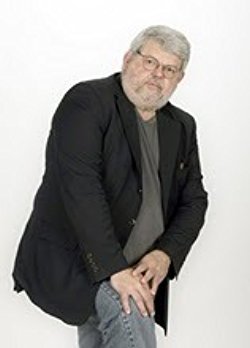
A CubaNews translation.
Edited by Walter Lippmann.
Anywhere in the world we can determine how good a functionary is. In Cuba, however, the unknown quantity is for how long.
It doesn’t matter that a doctor spends his time overseeing the economy or that a general is put in charge of the cultivation of sugar cane. Efficiency is not the main concern.
If anything has functioned well on the island over the past year it is international relations, and it is precisely in this arena that the most striking changes have been made.
One might argue that such successes are not solely due to the foreign minister, but it is also worth noting that they would not have been achieved without his input. At the least, one ought to concede that he was a good messenger.
Except that in Havana it is easier to replace the messenger than the source of the tidings. That’s why you can have a minister who is brilliant today and “unworthy” tomorrow.
Ministerial changes take place everywhere, as do political intrigues. Power is equally corrupting in capitalism and socialism. But in thinking about the changes that have transpired during the past week, there is something else, over and above all the explanations, that seems almost ghoulish: the recurrence of a seemingly never-ending mechanism that transforms someone from saintliness to dishonor, from representing the country’s best to sinking into its worst, dropping them from heaven to hell.
It is like turning the Bible into a simple gangster saga. It reduces a political process into the turf battles of a mafia family. It is like governing a country the way you might run a store, where the owner suddenly tells the customers that he had to fire the butcher because after ten years he just discovered that the butcher wasn’t washing his hands when he went to the bathroom.
Seen from the perspective of a week, the Cuban events lead one to think that one of the objectives has been to produce uncertainly, or its big brother: fear, even terror. With the publication of Fidel Castro’s “reflection,” what began on Monday as a broad restructuring of the government turned into a hint of something more sinister: a preventative blow against a possible conspiracy, with the government getting rid of figures in whom the “external enemy” might have hopes.
The changes of last Monday were first seen as a step taken by Raúl Castro to consolidate his power and move forward in establishing his own more institutional style of government, without using groups and individuals who – outside the bounds of governmental structures – wielded a considerable measure of power because they answered directly to Fidel Castro. Above all it was another response to the worry that “the revolution could be destroyed by its own members.” If Fidel Castro thought the solution lay in a generational change, Raúl sees it in sticking with the “historics.”
So there was an initial explanation, both for the fall of Carlos Lage “the reformer” and Felipe Pérez Roque “from the new generation.” It doesn’t matter that neither of them fully fit those roles, because a lot depends on perception, and especially on how they were seen abroad.
Then Fidel Castro’s “reflection” changed this initial perception, and their removal was explained by the conduct of both individuals. The (ex?) Commander-in-Chief leveled strong accusations, and came close to calling them traitors. His characterization of them as “unworthy” is reminiscent of previous trials: once again a potential threat is being thwarted.
By resigning all their posts, Lage and Pérez Roque carry out their final acts of loyalty to Fidel Castro. In two letters, whose only difference was the paper they were written on, both carry out their final assignment in support of the Comandante.
In a different period things would have gone worse for them: suicide or the firing squad. Now it seems that a piece of paper is enough. It is another illustration that the saga has drawn to a close. Cuba has returned to the epoch of generals and bureaucrats. Both the “reflection” and the letters seem aimed at making the process of restructuring into some form of a purge.
Therefore analysts and experts should resist the temptation to think that they already have the perfect explanation. Fidel Castro’s demand seems clear. In this drama he cannot appear to be the loser. Not because he was not ready to cede, which he has done, nor to deny that in the final analysis the whole movement is decided between both brothers. Here appearances are what is important, along with the image presented to the outside world, which is what he is most interested in.
And now the replacement of Fernando Remírez de Estenoz as head of the International Relations Department of the Communist Party (PCC) creates new speculation. The news has not been officially confirmed by Havana. But it leads us to wonder whether the departure of this official is related to the wave of firings. He had been vice-minister of foreign relations and headed Cuba’s diplomatic mission in Washington in the days when Havana was fighting for the return of young Elián González, and is a figure very closely linked to Lage.
It is hard to imagine that Remírez de Estenoz will go on to hold a higher position than the one he had, because on various occasions in the past his name had been raised as the possible foreign minister, a post to which Bruno Rodríguez Parrilla has just been named.
If he is kept removed from diplomatic functions –which seems to be the present situatio – Cuba is ruling out one of the most competent figures for potential negotiations with the United States, and it reaffirms the conclusion that Fidel and Raúl Castro feel they do not need “intermediaries” in this matter. In any case, they have just shown that there is no safety at their side, except in terms of the distance you keep, something that friends as well as enemies might bear in mind.
Will Havana Prosper?
Will Havana Prosper?
By Iroel Sánchez
A CubaNews translation.
Edited by Walter Lippmann.
March 21, 2017
Some time ago I published some questions about Havana:
“Is it a coincidence that places like Parque Lenin or Coppelia [ice-cream parlor in Vedado], symbols of the democratization of recreation and the access of the majority to refinement –opened by the collective project of the Revolution– languish between bad service and structural deterioration, while the idea that the good and the beautiful are the exclusive patrimony of the pre-revolutionary past? Why is the Latin American Stadium increasingly called the “Estadium del Cerro” in our media?
“Is it a Havana for tourists the one that will reach its 500th anniversary, reproducing the celebrations with the colonial flavor that –unlike what happened with the half millennium of Santiago de Cuba– took place in many of the towns founded by the Spaniards? Or as in Santiago, the neighborhoods built by the Revolution –and now more or less vandalized– (Camilo Cienfuegos, San Agustín, Alamar, Mulgoba, Reparto Electrico …) can renew their (lack of) urbanism and raise the quality of life of hundreds of thousands of Havana workers who have never been able to sit in a “paladar” [private restaurant]?
“Will the newly refurbished Capitolio of Havana be an old building for a new democracy, or a shell that –between marbles and bronzes, so dear to the dictatorships and plutocracies– forgets to consecrate the name of Jesus Menendez, the black working-class parliamentarian who imposed on the Yankees and the Cuban bourgeoisie a fair deal for the sugar workers. As a result, he was murdered despite his parliamentary immunity in “the most democratic period in contemporary Cuban history,” a phrase taken from an article in the Spanish newspaper El País signed by a Cuban “historian”?
And I return to these questions because, fortunately, for a few months now in the capital of the country we can see the growth of a transformative effort in favor of the majorities: renewing public spaces –like those mentioned in my questions– accessible to those who lack the resources to visit the new recreation centers which have prospered under the new economic measures. Large agricultural markets have been opened on the outskirts of the city. State-run gastronomic facilities with popular prices have been rescued. Fountains that had been without water for decades are running again. And other achievements are beginning to take shape with the decentralized funds collected by the municipalities. It can be said that, through these actions, the city thrives, because most of its inhabitants prosper.

But if that effort is not accompanied by the participation of the people in creating a culture of civic order and urbanity, all this effort will be like pedaling on a stationary bicycle. This participation must stem from a popular debate –we have the organizations and media to do so– that would serve for the dissemination and production of consensus around the rules that regulate and punish –if they were enforced– the frequent aggressions against common property.
To give just one example: the debris generated by construction work –for repairing opulent mansions acquired by landlords and the new rich in the most central municipalities of Havana– will continue to be dumped with impunity on street corners, so that the state sector –that is: the lowest paid workers– pay for its free collection without taking into account that, as explained by the British academic Emily Morris:
“As the non-state sector has developed, it has become increasingly clear that the relatively inefficient private firms have been able to thrive within the national economy since their costs in Cuban pesos, including labor, are undervalued at the CADECA / CUC rate they use for their transactions. In fact, the Cuban state is subsidizing the new non-state sector through the underrated rate of CADECA. Meanwhile, state-owned enterprises have to use the overvalued official exchange rate, a serious disadvantage in terms of their competitiveness. A form of “monetary illusion” which means that efficient state-owned enterprises report losses and therefore cannot raise capital for investment; while private entrepreneurs operating at very low productivity levels enjoy strong hidden state subsidies but complain of excessively high taxes.”
The non-state economy has much to contribute in Cuba; but illegality, tax evasion, hoarding, appropriation of the common good, and speculation with deficit products are not the best allies to convince of its virtues.
The first thing that should be clarified is what we mean when we use the verb “to prosper”.
In those economically “most prosperous” territories (such as: Trinidad –where business has developed along with the growth of garbage in the streets, and the notorious tax evasion reached such extremes that the ONAT [National Office for Tax Collection] of Sancti Spiritus had to be moved over there; Viñales –where teachers have to be taken from other municipalities and private pools try to steal the scarce water supply in times of drought; or Havana, where part of the efforts to supply popular restaurants and cafeterias, education and health centers, drains to private restaurants or bars that remain open until five in the morning –not until 3:00 am as it is regulated) businesses are favored by the indirect subsidies of the CADECA 25 to 1 exchange rate, the low rates of water, gas and electricity conceived for domestic use, but used for profit; the free disposal of increased amounts of solid waste –as if this waste came from the kitchen of a home.
In this way development and prosperity will be patrimony of a few to the detriment of the majority.(CubAhora)
Venezuela: Facts and Misinformation

Venezuela: Facts and Misinformation
Editorial
April 1, 2017
A CubaNews translation. Edited by Walter Lippmann.
Thanks to Nelson Valdes who brought this to my attention
and helped revise the translation for posting here.
The unfolding Venezuelan political crisis is being accompanied by an incessant media campaign that seeks to plant in international public opinion the idea that the South American country is going through a government-sponsored coup process that has little to do with reality.
This recent propaganda war against the democratically-elected Venezuelan government has been compounded in recent weeks by the political attacks originating at the Organization of American States –a multilateral organization presumably engaged in the pursuit of dialogue– and the rightwing and ultra-right regimes of the Latin American region
The facts are that the Venezuelan Constitution continues to be in operation, the president is still in office –which, in a presidential regime like the Venezuelan, makes it absurd to speak of the existence of a coup–, all constitutional guarantees are in force.
The internal life of all political parties and respect for freedom of expression persists. Paradoxically, those very constitutional rights are being used to describe the regime as a dictatorship. In addition, the notion that the legislative power was dissolved is no more than absurd, since no parliamentarian has been dismissed and the legislative assembly can resume its functions as soon as it complies with an order of the Supreme Court of Justice (TSJ) issued on January 5, 2016 .
The tale of a coup or self-coup by the government of President Nicolas Maduro is an uninformed interpretation of the decision adopted on Thursday, March 30, by the Constitutional Chamber of the TSJ, with which the TSJ assumed the powers of the National Assembly of Venezuela (ANV, Venezuela’s unicameral parliament), as it puts an end to the situation of contempt in which it finds itself caused by the illegal swearing in of three opposition deputies.
It should be remembered that the present situation of a prolonged confrontation between the Venezuelan right grouped in the Democratic Unity Table (MUD) and the Maduro government has its origin in the legislative elections of December 2015, when the opposition managed to snatch a majority from the pro-Chavez Parliament.
In the election then, large irregularities were verified and verified in the state of Amazonas were documented. This caused the annulment of the election of three MUD deputies and the high court also ordered the reinstatement of the corresponding votes. The opposition decided to use its parliamentary majority to swear in the legislators, in open violation of legality, and for that reason the courts declared the opposition in contempt by the TSJ.
It is also necessary to point out that the decision by which the TSJ temporarily assumes the powers of the assembly is based in Venezuelan law and responds to the need to unlock the operation of the oil sector, which is crucial to facing the serious economic crisis of the country.
In short, it is imperative to put an end to systematic disinformation that only exacerbates an already delicate conflict, and the outcome will determind the welfare and social peace of millions of Venezuelans. The Venuelans are the ones who must resolve their differences within the framework of their own laws, while the external actors who wish to contribute must do so while fully respecting the sovereignty of Venezuela and with the sole purpose of facilitating the implementation of resolutions adopted internally.
Is it Time to Change?
Is it Time to Change?
By Orlando Marquez
NUEVA PALABRA
February /2009 No. 182
A CubaNews translation.
Edited by Walter Lippmann.
After working for more than a year by request from the Washington Center for National Policies (CNP) a two-party team lead by former USA ambassador to Mexico James J. Jones and formed by Thomas Wenski, assistant bishop of Miami, University professor Max Castro, and Cuban American businessman Carlos Saladriga presented a report called “Cuba-United States Relations: time for a new approach” on January 23 2003.
In this 20-page report it was stated that “the United States will attain its goals with Cuba with a higher probability by using negotiation than by isolation”. The report didn’t recommend former President George W. Bush to lift the embargo. But, it recommended initiating a new policy and allowing American citizens to visit the Island. It also advised facilitating the sale of medicines and food products; to eliminate the limit set on money transfers to Cuban families; to review current legislations on Cuba, and facilitate scientific, professional and academic exchange. It recommended developing bilateral cooperation on issues of mutual interest like drug and people traffic, fighting crime and environmental protection. These recommendations were ignored at first, and a year later the government did just the opposite.
At the end of 2007 I met a former government official in Washington. Naturally, we talked about the United States and Cuba. He agreed with me that the isolation policy inherited, maintained and strengthened by his government had no followers. “So?” I asked. He talked about liberty, human rights… I agreed. I added that isolation had only created more problems and asked him if he thought China and Saudi Arabia, two of his country’s main associates, were good examples of liberty and human rights. He had no further arguments, and then he confessed that his superiors could not forgive, among other things, that former President Fidel Castro would have thought of launching a nuclear attack against the United States during the missile crisis, in 1962!… I was the one who ran out of arguments, because there is nothing to say when confronted with irrationality and passion. I must add that this government official did not agree with this policy, he only said that decision was out of his hands.
This issue has been treated very differently on our side! Certainly, there has been a lot of passion. Besides our “achievements in health and education” there has been no other issue more important in our national media than the evils of the United States. They have talked about presidential ineptitudes, economic crisis, social violence, racism (this may change somewhat after Obama’s election), police abuse, homeless, the millions of citizens without medical insurance, drug addicts… It would seem that every evil in the world is there, and only there, the worst, the most despicable. And, the attempt to distinguish between the American government and the “noble people of the United States” – that elect them- sounds absurd and untenable.
“A letter that put a mark on history” was the title chosen by Granma newspaper last year to accompany the fifty year old –four years before the missile crisis- letter they published. The letter was written by the Commander in Chief of the Rebel Army, Fidel Castro Ruz, to Celia Sanchez, after army planes had bombed the ‘bohio’ of a peasant with bombs made in the United States. In this letter the former Cuban President wrote; “When I saw the bombs they threw at Mario’s house I promised myself that the Americans will pay dearly for what they are doing now. After this war is over, I will start another war, longer and bigger: the one I am going to wage against them. I realize that this is my true destiny.” There is no proof that the former president kept on thinking the same way after the United States stopped selling armament to Fulgencio Batista’s government months later. This statement was not repeated later. Although it was reprinted, like this time on June 5. 2008, with a title that suggests, or intends to confirm, that our history is marked by eternal conflict with the United States.
Notwithstanding the fact that the United States government support of Fulgencio Batista’s government is criticizable, as is the fastidious and reprehensible interference in Cuban matters during the first half of the 20th century, Should our present and future history depend on the ill-fated attack on the humble home of a peasant that took place more than fifty years ago and on the feelings expressed in a letter written while those feelings were intense? Must we always suffer the consequences of what might have been, but didn’t happen, during the missile crises in 1962? I don’t think so.
During his campaign, Barack Obama, against all previously established molds, declared he was willing to talk to the leaders of all the countries considered as United States enemies, including Cuba. On our side, the will to establish a dialogue couldn’t be more evident, as President Raul Castro has declared more than once.
For many in his own country, Obama is still an enigma. And, for Cuba? Well, here, it is even more so. Many Cubans, including me, are waiting to see if the change in policy making in the United States and, therefore, in its external policy, also means a change in U. S, relations with Cuba.
However, Cuba is only pressing for Cubans. It is not very probable that Cuban issues will have a high priority for the new American government. Nevertheless, Cuba (with Cubans holding different points of view) shouldn’t be ignored. Cuba is too near, too active. It has a very large international and regional influence, as well as inside the United States. Cuba is too defying, and perhaps, it even has too much oil waiting to be extracted.
In spite of the willingness expressed by both presidents, some people have raised the alarm -both here and there – against a new status in the relations among the two countries. The ghostly remoras of the Cold War rise once more, ignoring the demands of millions of people. On that side some talk about the dangers of “recognizing” a dictatorship that never changes. On this side, those that always warned against an imminent military invasion, an argument that is already worn out, warn against a “cultural invasion” that can destroy us.
SOURCE: Original Spanish not available. Sorry!
Mario Conde’s Havana Noir
PAGINA 12 (Argentina)
Mario Conde’s Havana Noir
The investigations of Leonardo Padura’s detective are in audiovisual form now. Jorge Perugorria plays the detective who investigates a series of crimes in a colorful and decadent Cuba
The script of the series is based on four novels by the Cuban author.
FOUR SEASONS IN HAVANA, by NETFLIX
By Federico Lisical
A CubaNews translation.
Edited by Walter Lippmann.
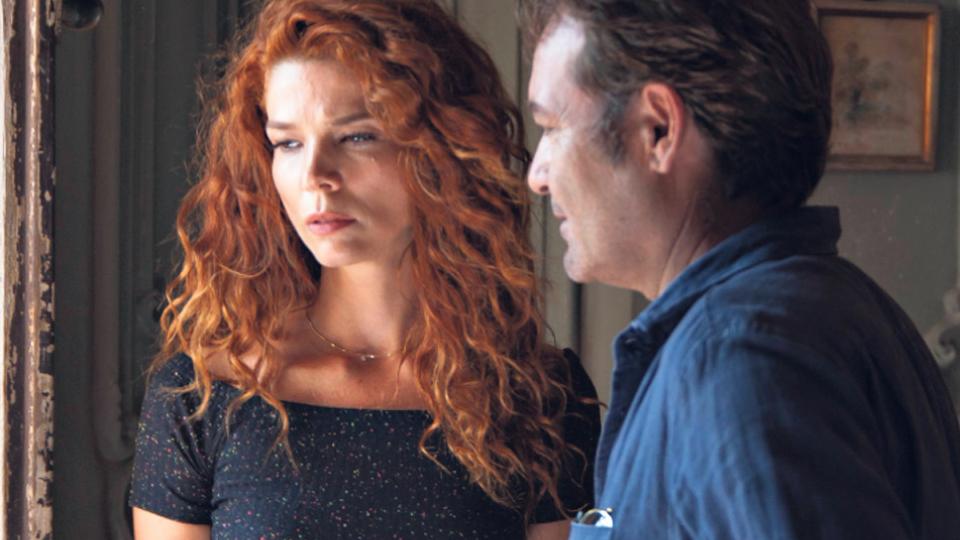
Los argumentos de la serie están basados en cuatro de las novelas del autor cubano.
“I decided to make a character who was in conflict with the reality he was living,” Leonardo Padura once told this newspaper. The Cuban writer was referring to Mario Conde, the officer who was the main character ofj his police novels and who now centers the NETFLIX miniseries Four Seasons in Havana (that since last Friday can be seen online). The series is based on stories in Padura´s four novels: Past Perfect, Winds of Lent, Masks, and Autumn Landscape.
This disenchanted but noble man, who does not seem to be a police lieutenant and has a great love for books, is interpreted by Jorge Perugorría. Almost to his regret, the best thing he knows how to do is solve mysteries and write up his wanderings with a typewriter. “There is no one better than Mario Conde to get into Havana, rummage through its darkness, and draw some light. That special insight the detective has, is particularly revealing. What I wanted to do was to make a kind of chronicle, a testimony of what recent Cuban life has been like. In each of his investigations, he reveals a sector of Cuban society, but also the humanity of a number of characters who live that reality day-to-day,” said the writer in another interview.
In total there are four episodes, ninety minutes each. They were directed by the Spaniard Felix Bizcarte, and the role of Padura himself in the adaptation was key, as well as that of his wife Lucia López Coll. Their intention was to preserve the tone of the novels and let the Cuban reality filter in naturally. What is the resulting Havana? One that shows its darkest and most sinful side. There is corruption, traffickers of all kinds –of drugs and influence– has been but there is also the dream of what the revolution could have been. Conde is a romantic who goes around throwing phrases for whoever wants to listen: “Havana has fallen so much that is has gone to shit”; “Cops investigating cops… What the hell is going on?”
The context is crucial as the books were published between 1991 and 1998 and reflected what was happening on the island after the end of the Cold War, the tightening of the embargo, and the regime’s opposite sides. As the author said, “… I learned from Hammett, Chandler, Vázquez Montalbán and Sciascia that a police novel can have a real relationship with the country’s environment; that it can denounce or touch concrete facts and not just imaginary realities.” “El Conde” moves about the capital of Cuba as a Philip Marlowe who suffers the heat, and fights his destiny, “doing what I have to do, but never what I really want to do.” The big difference with the iconic detective of suburban Los Angeles is that Conde is a cop. “It was totally unrealistic to have someone who was not a police officer investigate a crime in Cuba, especially if it was a murder,” Padura explained. But Conde also dreams of being a writer and that is what saves him.
This jaded subject is summoned to investigate the murder of a high school teacher while he is also looking into another case that has to do with his own past. In all of these there are several criminal associations. As in every noir police story, in addition to the investigations there are institutions tainted with indolence, elites complicit with business interests, femmes fatale, jazz music and seedy bars. Its main character is a researcher of the shadows but with a complex humanity and far from clichés. “Conde represents a generation of Cubans who believed in a country project that will never be, and feeds heavily on nostalgia. He’s a fucking nostalgic, as he defines himself, “said the actor who has the role.
The photography (by Spaniard Pedro J. Márquez) is one of the highest points of the production. The tone is twilight and oblivious to any “for export” intention. The rundown houses of the old quarters convey the stupor of the characters; and the danger in a harbor city when the sun goes down. The scenes of violence are given in unusual settings that can capture the audiences. In short, there are four genre stories within a very unique context that reflects the day-to-day life of the Caribbean city and its surroundings. One can easily perceive how the characters are linked: their body language, how they breathe and perspire, their unrefined speech that mispronounces sounds, how their food smells, and how they have sex. Four Seasons in Havana is, above all, a sensory experience. “Noir was never so colorful,” said one of the promotions for the miniseries; but it may be exactly the other way around.
Colombian Journalist Hernando Calvo Ospina’s Route

Once Again They Want To Change Colombian Journalist Hernando Calvo Ospina’s Route
Inconceivable branded a “terrorist” by the US, they diverted the Air France he was traveling on so it wouldn’t cross over US territory. Now, for the same reason, they made him change flights before boarding.
By Marina Mendez Quintero
May 27 2009 00:25:17 GMT
A CubaNews translation.
Edited by Walter Lippmann.
Because we have become accustomed to living with an arrogance that has triggered two wars, it doesn’t surprise us that Washington has allotted itself the prerogative of including countries, organizations or innocent people in its “terrorist” lists.
But what is really unbelievable and is apparently an escalade into the absurd is that one of those people (without even having been notified of such charges!) has been forced in two consecutive instances to change the course of a trip because he “has been forbidden” to fly over United States territory.
Mind you, we are not talking about touching or stepping on [US soil]: it is simply the act of passing a thousand feet above it. Even when the subject- of course, unarmed! – and, without looking down, is only reading a newspaper, comfortably sitting in an airplane.
Now, sitting in front of the reporter, with that clear and candid smile that always accompanies the Colombian journalist and researcher Hernando Calvo Ospina, “the defendant” is still surprised.
“Nobody understands it, and I still do not understand it. I can not understand how they came up with this “level of hazard”, they have assigned me.
The first time was April 18 last, and the news spread like wildfire, turning into a scandal. Perhaps you read it in this same newspaper: an Air France plane full of passengers, in a Paris-Mexico route, had to change course in mid-flight because the U.S. did not allow it to fly across its territory. The reason they gave was that one of the passengers was a person who constituted “a threat to its national security”.
The change of course happened when we were reaching Mexico. It lengthened the trip and took the passengers to an unexpected excursion to Martinique. This was because the fuel they had was not enough to take all those turns and the plane had to be refueled. Some children got sick and vomited, and many adults arrived finally in Mexico with leg cramps.
The person most surprised was Calvo Ospina himself when they told him he was the cause of the detour. He was the ‘unwelcome” person in the air above the U.S.
The worst thing is that this strange situation repeated itself, more or less the same, a few days ago.
He was traveling to Havana from Paris, where he resides, and three hours before boarding the phone rang. ‘Hernando Calvo Ospina? This is Air France calling. We can not let you board the plane because it will pass through U.S. airspace to enter Cuba’. These were more or less the words they used.
They changed the tickets and “sent” him via Madrid.
Calvo Ospina now wonders whether Air France gives U.S. authorities the passenger lists of its company’s flights that will cross U.S airspace.
– What will you do when you get back to Paris?
– First, I have to ask Air France for an explanation. But I think I will sue them and-most importantly- the United States on the issue of my image.
– How do you feel, a man like you, who has fought terrorism for so long, and is now in one of those lists?
– Look, it’s a very difficult situation because one already knows what they could do: put me in prison, torture me. But, the thing is. You think: What did I do that was so bad? I’ve never shot a gun! I have spoken with the French authorities, and they also do not understand it. I can not understand it either. Are there other games going on under the table to put pressure on someone through me? Where or whom? It is the first time in the history of Air France that this happens, there is no precedent.
“French authorities also did not understand that the course of the plane was altered when president Obama was meeting with almost all Latin American presidents (Summit of the Americas), and told them: ‘We are going to change our ways, we will respect. “
– Why do you think you were included?
– What I have been able to find out from colleagues and friends, is that there seems to be four reasons: the articles I have published against the Colombian government, the articles I’ve done against the U.S. policy towards Latin America, my relationships and interviews with the leaders of Colombian guerrillas, and my relations with countries ‘hostile’ to the U.S.
“Now, I do not know which Latin American countries are hostile to the U.S., because what I do know is that the U.S. is the one who has been hostile to several Latin American countries. But I do not think that these four “reasons” are enough to justify all the things that happened.”
I did not ask him what route he will use to return to France … In any case, Hernando Calvo Ospina has a clear conscience. His only arsenals are the dozens of articles where he has denounced many of the White House dirty policies, and a dozen books in which he speaks of a real terror: the one successive U.S. administrations wage against Latin America.
Subscribe to Blog via Email
| M | T | W | T | F | S | S |
|---|---|---|---|---|---|---|
| 1 | 2 | 3 | 4 | |||
| 5 | 6 | 7 | 8 | 9 | 10 | 11 |
| 12 | 13 | 14 | 15 | 16 | 17 | 18 |
| 19 | 20 | 21 | 22 | 23 | 24 | 25 |
| 26 | 27 | 28 | 29 | 30 | 31 | |

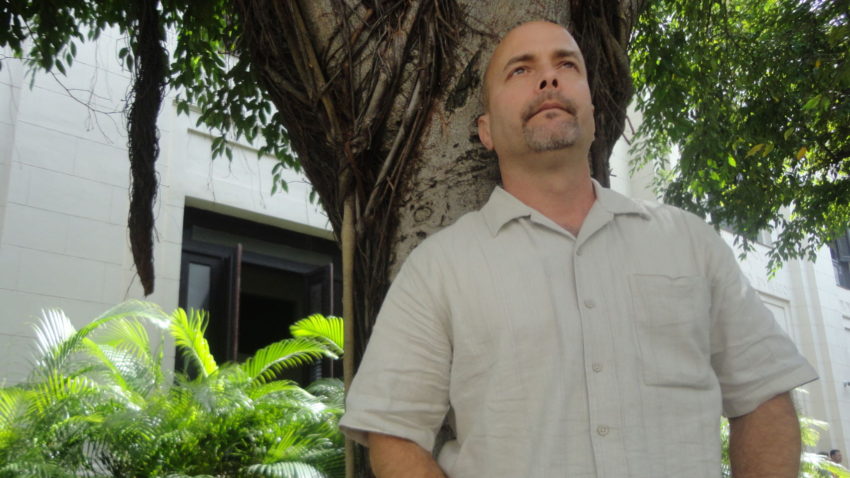

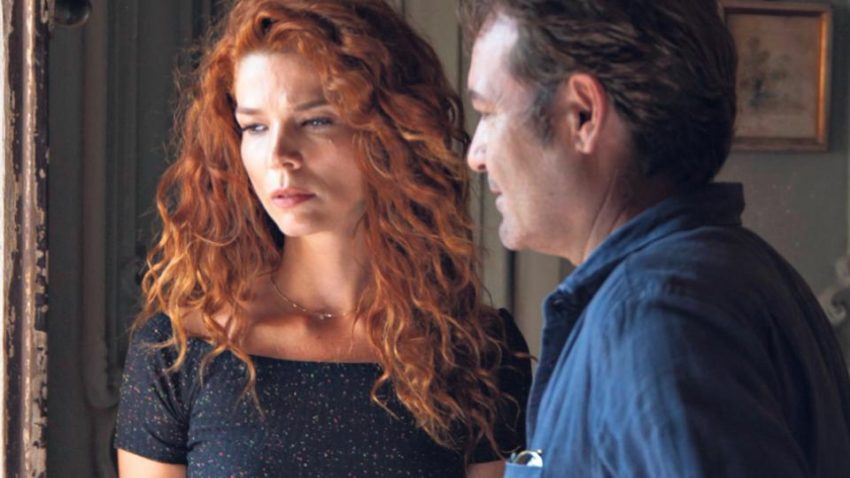
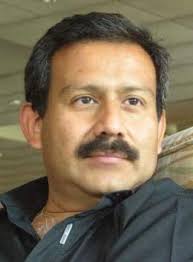
You must be logged in to post a comment.